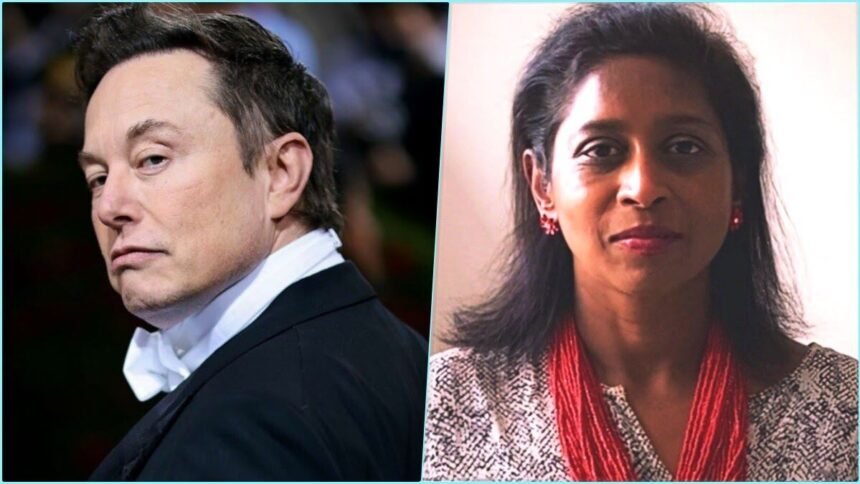Tesla, the electric vehicle giant helmed by Elon Musk, is known for its rapid pace, innovation, and intense work culture.
The recent resignation of Sreela Venkataratnam, Vice President of Finance and Business Operations, has once again put Tesla in the spotlight, not just for its achievements but also for the demanding nature of working within the company.
Venkates departure underscores the challenges of working in such a high-stakes environment, where only the most resilient can thrive.
The Legacy of Sreela Venkataratnam
Sreela Venkataratnam’s departure marks the end of an 11-year tenure with Tesla, during which she played a pivotal role in the company’s rise to prominence.
As one of the few female executives at Tesla, her leadership was instrumental in guiding the company through its transformative years.
Venkataratnam’s contributions spanned multiple facets of Tesla’s business, from the development of its iconic vehicles to the expansion of its energy products.
In a LinkedIn post announcing her resignation, Venkataratnam reflected on her time at Tesla with a mix of pride and realism.
She highlighted the company’s impressive growth, stating, “Leaving as Vice President with close to $100 billion in annual revenue, a market cap of $700 billion (reaching $1 trillion during the pandemic), and over 1.8 million cars delivered in a year, I am proud of how much we have achieved together.”
This statement is a testament to the extraordinary journey Tesla has undergone, from a niche electric carmaker to a global leader in clean energy and automotive technology.
The Challenges of Working at Tesla
However, Venkataratnam’s post also included a candid remark that working at Tesla is “not for the faint of heart.” This comment, though brief, speaks volumes about the intense work environment at Tesla, a company where the pressure to innovate and deliver results is relentless.
Tesla’s culture is famously fast-paced, with employees often expected to work long hours and meet ambitious targets. This environment, while rewarding for some, can be exhausting for others.
Venkataratnam’s acknowledgment of the challenges she faced at Tesla sheds light on the high expectations placed on employees, especially those in leadership positions.
In response to a comment from former Tesla CFO Jason Wheeler, Venkataratnam reiterated that working at Tesla is “definitely not for the faint of heart.”
This reinforces the notion that while Tesla’s achievements are remarkable, they come at a significant personal cost to those who drive the company forward.
Tesla’s Impact Under Venkataratnam’s Leadership
Despite the challenges, Venkataratnam’s role at Tesla was filled with notable achievements.
She was deeply involved in the creation of several of Tesla’s flagship products, including the Model S, Model X, Model 3, Model Y, and the highly anticipated Cybertruck.
Her strategic role also extended to Tesla’s energy products, an area that is increasingly important to the company’s future growth.
Venkataratnam described her work as having a “privilege of contributing to the creation of…several new factories.”
This statement underscores the scale of Tesla’s ambitions and the critical role that its executives play in turning these ambitions into reality.
Under her leadership, Tesla also made significant strides in streamlining the car purchasing process, particularly in automating car registration and delivery in multiple states.
This innovation not only improved the customer experience but also set a new standard for the automotive industry.
The Broader Implications of Venkataratnam’s Departure
Venkataratnam’s resignation raises questions about the sustainability of Tesla’s work culture. While the company has achieved phenomenal success, it has also seen a number of high-profile departures over the years.
The intense work environment that drives Tesla’s innovation may also be contributing to burnout among its top executives.
Tesla’s rapid pace of growth and the pressure to maintain its competitive edge in the market create a challenging environment for its employees.
Venkataratnam’s departure, coupled with her comments, may prompt a closer examination of how sustainable such a high-pressure work culture is in the long term.
As Tesla continues to expand and evolve, it may need to balance its drive for excellence with the well-being of its workforce.





